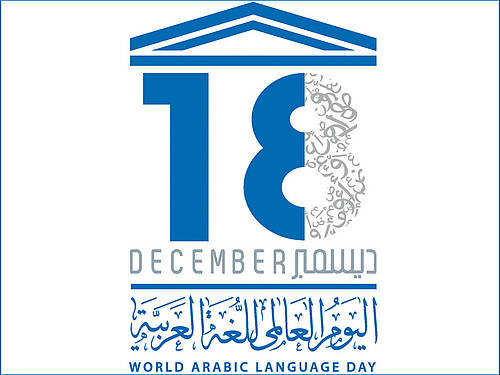World Arabic Language Day: Why and How to Celebrate It?
World Arabic Language Day: Why and How to Celebrate It?

Introduction
Every year, December 18th marks an important date for speakers, students, and enthusiasts of the Arabic language: World Arabic Language Day. Initiated by UNESCO in 2012, this celebration highlights the importance of a fascinating language that stands among the most ancient, rich, and influential in human history. More than just a means of communication, Arabic serves as a cultural and spiritual cornerstone for millions worldwide. In this article, we delve into the history of this day, the significance of the Arabic language, and inspiring ways to celebrate it.
A Global Language Recognized by UNESCO
World Arabic Language Day was established by UNESCO in 2012 to commemorate the official recognition of Arabic as one of the United Nations’ official languages on December 18, 1973. As one of the six official languages of the UN, Arabic plays a vital role in international diplomacy, science, and cultural exchange.
Why did UNESCO dedicate a special day to this language?
Because Arabic is not just a linguistic tool. It has played a pivotal role in preserving and spreading human knowledge, particularly in medicine, astronomy, philosophy, and mathematics during the golden age of Islamic civilization.
Book your free trial lesson
Don’t want to go through the translation anymore?
30 free minutes with your qualified Egyptian teacher.
The Cultural and Spiritual Importance of the Arabic Language
A Spiritual Medium
Arabic holds a central place in Islam as the language in which the Quran was revealed. For millions of Muslims worldwide, learning Arabic is a way to connect more deeply with divine teachings and understand their religion better.
An Invaluable Cultural Heritage
Arabic is also a language of poetry, literature, and philosophy. Monumental works, including pre-Islamic poetry, Avicenna’s writings, and One Thousand and One Nights, attest to the language’s cultural richness.
A Living and Evolving Language
With over 400 million native speakers and millions more studying it as a second language, Arabic continues to evolve and adapt to modern needs. From regional dialects to advancements in linguistic technology, Arabic remains a vibrant and resilient language.
Why Celebrate World Arabic Language Day?
Raising Awareness of Its Global Importance
World Arabic Language Day serves as a reminder that this language transcends the boundaries of the Arab world. It plays a key role in intercultural dialogue and the preservation of human heritage.
Encouraging the Learning of Arabic
For non-native learners, this day can inspire deeper engagement with Arabic’s grammar, vocabulary, and cultural nuances. It’s also an opportunity to emphasize the language’s career value, particularly in fields like diplomacy, international trade, and translation.
Valuing Linguistic and Cultural Heritage
Celebrating Arabic means celebrating the traditions, artistic expressions, and customs it carries. This day is a privileged moment for Arab artists, writers, and thinkers to share their vision with the world.
How to Celebrate World Arabic Language Day?
1. Organize Cultural Events
Conferences, calligraphy workshops, poetry readings, and exhibitions on Arabic literature can be organized to raise public awareness.
2. Promote Arabic Learning
Schools, universities, and online learning platforms like the Al Dirassa Institute can offer free courses or introductory sessions for beginners. Such initiatives broaden access to learning and spark interest in the language.
3. Share Educational Content Online
With the rise of social media, sharing educational resources, historical anecdotes, and fascinating facts about Arabic has become easier than ever. Hashtags like #WorldArabicLanguageDay or #ArabicLanguage bring an international community together to celebrate.
4. Participate in Discussions About the Role of Arabic
Debating Arabic’s role in the modern world, the challenges of learning it, and its future in a globalized world are enriching ways to mark the day.
The Role of Al Dirassa Institute in Promoting Arabic
On World Arabic Language Day, the Al Dirassa Institute reaffirms its commitment to teaching Arabic in all its forms: classical language, regional dialects, and Quranic Arabic. With courses tailored to beginners and advanced learners, we offer flexible programs to meet the needs of students.
Why Choose Al Dirassa Institute to Learn Arabic?
- Native, experienced teachers
- A pedagogical approach tailored to all ages
- Online courses accessible from anywhere
Conclusion
World Arabic Language Day is more than just a calendar date; it’s a call to appreciate, preserve, and promote one of humanity’s most valuable linguistic treasures. Whether you’re a native speaker, a student, or simply an admirer of this language, December 18th is the perfect opportunity to deepen your connection with Arabic. Use this day to explore new facets of the language and, perhaps, start a linguistic journey with the Al Dirassa Institute.
To know more: Learn Arabic Online: Mastering the Language of the Quran
Chosen and Trusted by Thousands of Satisfied Learners
Discover the experiences of our delighted clients who have thoroughly enjoyed utilizing this standout feature.
Alhamdulillah I‘m very pleased with the arabic and Qur’an lessons I receive from teacher Umm Tasneem and I‘m also content with the al-dirassa administration team who were very quick in answering any questions I had. In a month I progressed a lot and I cannot wait to continue my studies with al-dirassa. May Allah reward everyone at al-dirassa.
Verified review - view original
My Qur’an teacher is fantastic, she teaches me in a loving and kind way where I look forward to the lessons and learn so much. My Arabic teacher is equally as nice and has a lot of patience with me, she has great expertise in the field and I’ve progressed really quickly with her. Thank you Al-dirassa!
Verified review - view original




